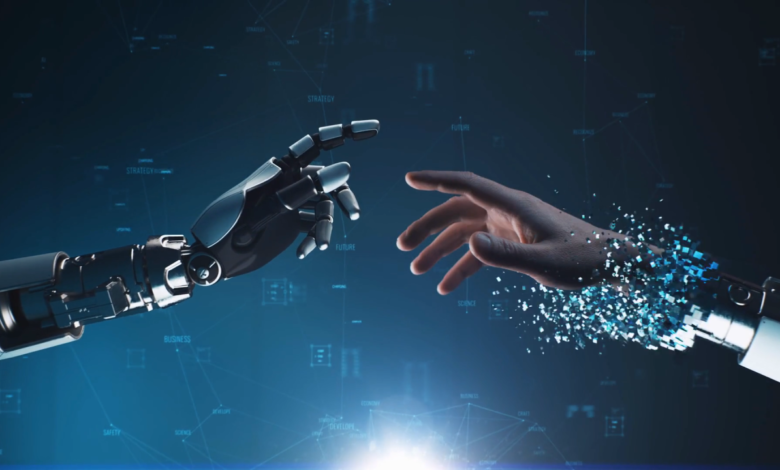The Future of Government: Emerging Trends and Predictions
The future of government is evolving with emerging trends and predictions, driven by technology, and global collaboration for a better future.

Emerging trends and bold forecasts that aim to revolutionise society’s governance are propelling the fast evolution of the future of government. It is critical that we comprehend the major forces influencing these shifts as we look ahead, from evolving political environments to technology breakthroughs. Across the globe, governments are adjusting to the new normal by utilising state-of-the-art technologies to enhance citizen involvement, efficiency, and transparency. The development of big data analytics, blockchain, and artificial intelligence will make government more secure, data-driven, and responsive in the future.
The future of government is being shaped in large part by social and economic changes in addition to technological advancements. Policymakers are being forced to reconsider conventional wisdom and adopt more decentralised, collaborative governance models in response to the growing need for inclusive and participatory alternatives. Global issues like economic injustice, cybersecurity risks, and climate change are also pushing governments to create new alliances and creative solutions. Future of Government may better manage the challenges of the twenty-first century and build a more sustainable, just, and prosperous future for all by keeping ahead of these trends and projections.
The Future of Government
E-Government Services
The adoption of digital technologies is revolutionizing public services. E-government initiatives are making it easier for citizens to access services online, reducing bureaucracy and increasing efficiency.
Smart Cities
Smart cities use data and technology to improve urban living. Governments are investing in IoT, AI, and big data to enhance infrastructure, transportation, and public services, aiming for more sustainable and livable urban environments.
Cybersecurity
Protecting Public Data
With increasing digitalization, the threat of cyberattacks on government systems grows. Governments are prioritizing cybersecurity measures to protect sensitive data and ensure the integrity of public services.
National Security
Cyber warfare is becoming a critical aspect of national security. Governments are developing advanced cyber defense strategies to protect national interests and infrastructure from potential threats.
Public Participation
Digital Democracy
Digital platforms are enabling greater citizen participation in governance. Online voting, e-petitions, and social media engagement are empowering citizens to have a more direct impact on decision-making processes.
Transparency and Accountability
Governments are leveraging technology to increase transparency. Open data initiatives and blockchain technology are being used to enhance accountability and reduce corruption.
Policy Innovation
Evidence-Based Policymaking
Data analytics and AI are transforming how policies are formulated. Governments are using data-driven insights to create more effective and targeted policies.
Regulatory Sandboxes
To keep pace with rapid technological advancements, governments are establishing regulatory sandboxes. These environments allow for the testing of new technologies and business models in a controlled setting, ensuring innovation while safeguarding public interest.
Sustainability
Green Policies
Environmental sustainability is becoming a priority for governments. Policies aimed at reducing carbon emissions, promoting renewable energy, and ensuring sustainable development are being implemented worldwide.
Circular Economy
Governments are encouraging the transition to a circular economy. This model focuses on reducing waste and promoting the reuse and recycling of resources, fostering sustainable economic growth.
Social Equity
Inclusive Policies
Governments are increasingly focusing on creating inclusive policies that address social inequalities. Efforts are being made to ensure equal access to education, healthcare, and economic opportunities for all citizens.
Universal Basic Income
The concept of Universal Basic Income (UBI) is gaining traction as a potential solution to economic disparities and job displacement caused by automation and AI.
Global Governance
International Cooperation
Global challenges such as climate change, pandemics, and cybersecurity threats require international cooperation. Governments are working together through international organizations and agreements to address these issues collectively.
Global Trade Policies
Trade policies are evolving to address the complexities of the global economy. Governments are negotiating new trade agreements that reflect the realities of digital trade, intellectual property, and global supply chains.
Technological Integration
AI and Machine Learning
AI and machine learning are being integrated into various government functions, from predictive policing to healthcare management. These technologies are enhancing decision-making processes and improving service delivery.
Blockchain for Governance
Blockchain technology is being explored for its potential to revolutionize governance. Its applications include secure voting systems, transparent public records, and efficient contract management.
Workforce Transformation
Public Sector Workforce
The future government workforce will need to adapt to new technologies and evolving job roles. Training and development programs are essential to equip public sector employees with the necessary skills.
Remote Work
The COVID-19 pandemic has accelerated the shift towards remote work in the public sector. Governments are adopting flexible working arrangements to enhance productivity and employee satisfaction.
Economic Policies
Digital Economy
Governments are crafting policies to support the digital economy. This includes fostering innovation, regulating emerging technologies, and ensuring a level playing field for all businesses.
Taxation of Digital Services
Taxation systems are being updated to address the challenges posed by the digital economy. Governments are developing new frameworks to tax digital services and multinational corporations effectively.
Health and Welfare
Telehealth Services
The adoption of telehealth services is expanding access to healthcare. Governments are investing in telemedicine infrastructure to ensure citizens can receive medical care remotely.
Mental Health Initiatives
Mental health is becoming a priority for public health policies. Governments are implementing initiatives to improve mental health services and support for citizens.
Education Reform
EdTech Integration
Educational technology (EdTech) is transforming learning environments. Governments are integrating EdTech into the education system to enhance teaching methods and provide personalized learning experiences.
Lifelong Learning
The concept of lifelong learning is being promoted to ensure citizens can continuously update their skills in a rapidly changing job market. Governments are supporting adult education and vocational training programs.
Infrastructure Development
Resilient Infrastructure
Governments are focusing on building resilient infrastructure to withstand natural disasters and climate change. Investments in sustainable and adaptive infrastructure are critical for future-proofing cities.
Transportation Innovations
Innovations in transportation, such as electric vehicles and autonomous systems, are being supported by government policies. These advancements aim to reduce emissions and improve mobility.
Read More: 2024 Consumer Protection Updates: What Businesses Must Comply With
Conclusion
Future of Government is likely to see major changes brought about by a confluence of changing societal needs and technology advancements. The incorporation of big data, blockchain, and artificial intelligence into government procedures is expected to improve security, efficiency, and transparency. Future of Government will be able to make better decisions, engage citizens more, and offer more individualised and effective services thanks to these technology. Future of Government must remain flexible and adaptive as these trends emerge, embracing new technologies while making sure privacy rights and ethical considerations are respected.
Furthermore, broader social and economic forces that demand more inclusive and participatory governance models will impact the future of government. Governments will have to work together internationally and come up with creative solutions to solve global issues like cybersecurity, economic injustice, and climate change. Governments may use emerging technology to create more responsive and resilient systems that better serve their constituents by promoting a culture of cooperation. Future-focused, the continuous development of governmental procedures has the capacity to provide a more just, sustainable, and affluent society for everybody.
FAQs
What technologies are shaping the Future of Government?
Emerging technologies such as artificial intelligence, blockchain, and big data analytics are transforming government operations, enhancing efficiency, transparency, and citizen engagement.
How will AI impact government services?
AI will improve government services by enabling personalized and efficient service delivery, enhancing decision-making processes, and increasing overall responsiveness to citizen needs.
What are the key social trends influencing Future of Government?
Key social trends include the demand for more inclusive and participatory governance models, addressing economic inequality, and fostering greater citizen engagement in policymaking.
How can address global challenges in the Future of Government?
The Future of Government can tackle global challenges like climate change and cybersecurity by developing innovative solutions, leveraging technology, and fostering international partnerships and cooperation.
What role will transparency play in Future of Government?
Transparency will be crucial in Future of Government, as it builds trust, enhances accountability, and ensures that government actions are visible and understandable to citizens.











